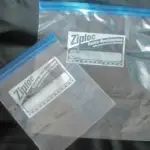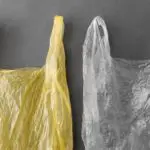Composting Tea Bags? Tea is the second most commonly consumed beverage, with water being first. Around 5.8 million metric tons of tea are produced and sold annually, and the number is expected to increase.

Can You Compost Tea Bags?
You can compost most tea bags, but not all. Some types of tea bags can ruin the compost. Before tossing used bags in compost, make sure it is biodegradable.
Some tea bags contain polypropylene, and the substance is not compostable.
Polypropylene tea bags usually have a slippery surface and tightly sealed edges.
These tea bags go in the trash. They are also not recyclable, but you can use the tea leaves in the garden. Cut the tea bag open and remove the damp leaves. You can compost the tea leaves or put them directly into the garden.

Are All Tea Bags Compostable?
Some tea bag manufacturers advertise their products as biodegradable, making it easy to know if it’s safe for composting. Others list the materials used in the tea bags.
Unfortunately, some tea bag producers will leave you guessing about the materials used in the manufacturing process. In this case, you have two options.
You compost the tea leaves and throw the bag in the garbage. The other option is putting the tea bag in compost for a few days.
Moist tea bags decompose at a relatively fast rate. The wet tea leaves provide heat to the compost, speeding up the decomposition process.
Placing the tea bag at the edge of the pile minimizes the risk of contamination if it is made from materials like polypropylene. If the tea bag is starting to break down, it’s safe to leave it in the compost pile.
Tea bags made from paper, muslin, or silk are biodegradable and safe to compost.
Look at the Seal
All tea bags have seals. It keeps the leaves in the bag and out of your cup. Some types of seals cannot go in compost.
Tea bags closed with strings are compostable. The strings are usually cotton, a biodegradable material. Tea bags sealed with glue should not go in compost, but you can cut the ends off.
Metal staples are another common way of sealing tea bags. Metal never goes in compost, so you need to remove the staples. You can toss the staples in the recycling bin.

How to Compost Tea Bags
Composting tea bags doesn’t require any special steps. You compost tea bags the same way as other materials.
After removing any glue and metal staples, toss the tea bags in with your other compostable kitchen waste.
Tea leaves are rich in nitrogen and go in the compost’s green layer. To keep the nitrogen levels balanced with the carbon, you may want to add some grass clippings or other plant debris.
Aerating the pile speeds up the decomposition process. You should flip the compost every two or three days for the first couple of weeks. After about six months or so, the tea bags should completely break down.
A good tip is to soak the tea bags in hot water before adding them to the compost. Let the water cool down, you don’t want to harm the worms and microbes in the pile. Soaking the tea bags helps them break down faster.

Can You Compost Tea Bags with Coffee Grounds?
You can compost tea bags with coffee grounds. It won’t upset the balance between nitrogen and carbon. Most compost piles have a problem containing too much nitrogen, usually from grass clippings.
Tea leaves are rich in nitrogen while coffee grinds contain carbon. Both are essential for healthy plant growth. Don’t worry about the caffeine in tea and coffee. The stimulant will not harm garden plants or the compost pile.

What Are Some Compostable Tea Bag Brands?
Some of your favorite tea brands are making it easy to know if their bags are compostable. All Celestial Seasonings tea bags are compostable, including the seals. Here are a few other tea brands using compostable tea bags.
- Tazo tea bags are compostable but don’t forget to remove the metal staples. If you are using the brand’s filter bag envelopes, you cannot toss them in compost or recycling. The inner stay-fresh liner is non-biodegradable.
- Yogi produces tea bags made from wood pulp and hemp. These tea bags are safe to compost.
- Lipton is a favored tea brand, and the bags are compostable. Lipton tea bags are created from unbleached hemp fibers.
These are a few of the popular tea brands that use compostable tea bags.
What Are Some Compostable Tea Bag Brands?
Some of your favorite tea brands are making it easy to know if their bags are compostable. All Celestial Seasonings tea bags are compostable, including the seals. Here are a few other tea brands using compostable tea bags.
- Tazo tea bags are compostable but don’t forget to remove the metal staples. If you are using the brand’s filter bag envelopes, you cannot toss them in compost or recycling. The inner stay-fresh liner is non-biodegradable.
- Yogi produces tea bags made from wood pulp and hemp. These tea bags are safe to compost.
- Lipton is a favored tea brand, and the bags are compostable. Lipton tea bags are created from unbleached hemp fibers.
These are a few of the popular tea brands that use compostable tea bags.

Are There Downsides to Composting Tea Bags?
When it comes to putting tea bags in compost, there aren’t any downsides. You are eliminating waste in landfills and the need for chemical fertilizers in the garden.
The only thing you need to watch for is the plant’s mineral requirements. Not all gardens plants need the same level of nutrients.
Adding tea leaves to compost boosts nitrogen levels, and the mineral is something all plants need in varying amounts.
Tea bags also contain potassium, phosphorus, and tannic acid. These are minerals not all plants need for growth. Tannic acid can stunt growth, along with manganese, aluminum, and fluorine all found in tea bags.
To ensure your garden’s health, finding out the nutrient requirements for your plants will let you know where to spread composted tea bags.
Some of the plants that benefit from adding tea bags to compost are azaleas, begonias, ferns, roses, shrubs, and most vegetables.
Conclusion
You can compost tea bags and it’s a great way to add nitrogen to your garden. Just make sure all plastic is removed, including any glued seals.
You also want to take out any staples. You can put the aluminum staples in your recycling.







